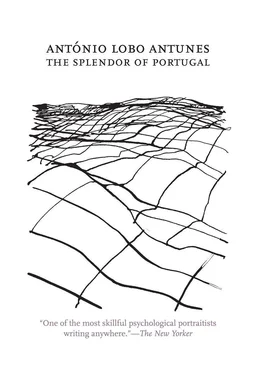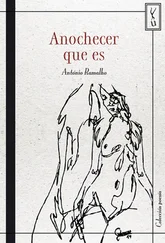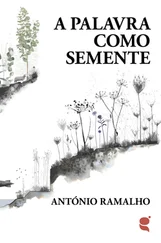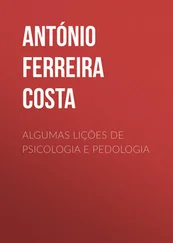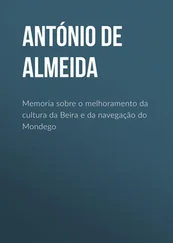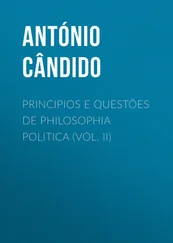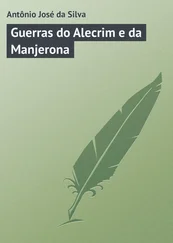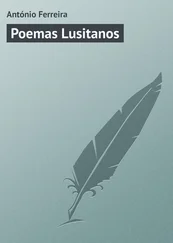António Antunes - The Splendor of Portugal
Здесь есть возможность читать онлайн «António Antunes - The Splendor of Portugal» весь текст электронной книги совершенно бесплатно (целиком полную версию без сокращений). В некоторых случаях можно слушать аудио, скачать через торрент в формате fb2 и присутствует краткое содержание. Год выпуска: 2011, Издательство: Dalkey Archive Press, Жанр: Современная проза, на английском языке. Описание произведения, (предисловие) а так же отзывы посетителей доступны на портале библиотеки ЛибКат.
- Название:The Splendor of Portugal
- Автор:
- Издательство:Dalkey Archive Press
- Жанр:
- Год:2011
- ISBN:нет данных
- Рейтинг книги:3 / 5. Голосов: 1
-
Избранное:Добавить в избранное
- Отзывы:
-
Ваша оценка:
- 60
- 1
- 2
- 3
- 4
- 5
The Splendor of Portugal: краткое содержание, описание и аннотация
Предлагаем к чтению аннотацию, описание, краткое содержание или предисловие (зависит от того, что написал сам автор книги «The Splendor of Portugal»). Если вы не нашли необходимую информацию о книге — напишите в комментариях, мы постараемся отыскать её.
The Splendor of Portugal — читать онлайн бесплатно полную книгу (весь текст) целиком
Ниже представлен текст книги, разбитый по страницам. Система сохранения места последней прочитанной страницы, позволяет с удобством читать онлайн бесплатно книгу «The Splendor of Portugal», без необходимости каждый раз заново искать на чём Вы остановились. Поставьте закладку, и сможете в любой момент перейти на страницу, на которой закончили чтение.
Интервал:
Закладка:
“Come eat dinner with us, father”
Damião held him up at his waist and sat him down at the head of the table and everyone pretended not to notice the potatoes that were spilled everywhere, the waxy tears running down his cheeks that he wiped away with his sleeve and napkin, pretending that they didn’t think that my father was drunk, Rui biting his own tongue and foaming at the mouth, Clarisse hoping that I would lie to her
“It’s just a bird it’s true that it’s just a bird right Carlos?”
yet it wasn’t a bird or a fox or the women in the workers’ huts mourning a death or the fever-breath of the cotton, it was the grandfather clock with the Roman numerals in the hall that always had the wrong time, first it’s five o’clock in the morning, then six in the afternoon, and then thirty-six demented clangs, it was my mother’s voice in between sobs, from far away and up close
me pushing shoving people aside on the gangway of the boat and my mother promising
“Promise me”
that she would look after her
“It’s my fault Amadeu don’t try to tell me different it’s my fault”
Rui, for whom I bought an overstock bargain necktie, very colorful the way he likes it, strutting around the home with the other residents, proud of his new gift, not thinking about my mother, my father, me, showing off that miserable rainbow tie, the boat leaving Luanda, Rui counting dolphins, pointing at them with his outstretched index finger
“Fifty-one”
it was necessary to go along whenever he went out so that he didn’t get lost at the first street corner and didn’t get picked up by the police, half naked in the street, pieces of newspaper stuck in his collar, mocked and insulted in Odivelas or Oeiras, trying to strike up conversations with the Cape Verdeans, believing they worked for us
“I can’t find the way back to the plantation”
asking the guards at the station, fidgety in his fetid, tattered clothes, eating soup
(it must be soup judging from the noise his tongue is making)
out of a tin bowl
“My brother Carlos knows the way back to the plantation”
Rui here with me in the apartment very soon, giving me a picture frame or an ashtray or a book, completely at ease, his shoes shined
“Hi brother”
hair combed, face shaven, fingernails trimmed, wearing a threadbare suit and the secondhand shirt they give to the residents when they leave to visit family, brushing them off in the lobby, handing out sedatives just in case
“Well look at you so well-behaved”
Clarisse and I waiting for five or six years in the darkness of the bedroom and it wasn’t a bird, no chance at all it was a bird, it was the clinking of a glass, the ringing of the clock that prevented us from hearing my father, my mother’s indignant voice over the voice of the sunflowers
“Put him in a home in Luanda really put him in a home in Luanda do you know what you’re asking me to do Amadeu?”
my mother if she could see where I put him would kill me, the way Clarisse and Lena, furious with me, almost killed me, when I told Rui
“Put your things in a suitcase and hurry up that cheat of a cab driver won’t shut off his meter”
not quite a clinic, not quite a home, an establishment in Damaia where they take in poor things that are a burden to their families as was our case, people dying of cancer, mentally retarded, blind, there were even beds out on the porch, in the hallway, in the kitchen, they gave them a glass of wine and a bowl of rice pudding on Saturdays, changed the linens every two weeks, they got a hot shower once a month, in Damaia right across the street from the theater, well fed, no need to work, luxuriating looking out the window at the actresses on the movie posters, a grocery store just a few steps away, a moped repair shop, very lively compared to Ajuda, gypsies wearing gold rings selling clothes laid out on canvas tarps on the sidewalk, Clarisse blocking my way on the stairs, hitting me with her fist
“If you go through with this I swear I’ll call Mom Carlos I swear I’ll call Mom”
caught up in the delusion that the telephone lines actually worked in Africa, that the postal system worked, Rui, whose behavior was always so unpredictable, happened to be in an obedient mood standing behind me with his suitcase and her hitting me convinced that my mother would find out at some point, isolated in Angola by the Cubans with the cotton all lost and spoiling in the field because there was no one to harvest it, at the head of the table in a mansion that had been looted, waited upon by Damião or Fernando
Maria da Boa Morte
their pomaded hair shining, in white coats, white gloves, and gold buttons as if there weren’t any bombs or war or corpses on the plantation, eating cassava grits and dry fish on porcelain plates and with silver utensils under the chandelier with its dim lightbulbs and missing crystals, what’s become of the grandfather clock that always had the wrong time, the dozens of whiskey bottles in the cupboards, what’s become, more to the point, let’s be realistic, of the cupboards themselves, Clarisse wearing a blouse more low-cut than usual blocking my way on the stairs, under the mistaken impression that it mattered to me at all and Rui to Clarisse
“Let go of Carlos sister”
a brother who took his word of honor seriously, nicely dressed, loving, submissive, agreeing with me, if the whole world were like Rui was in the times between his attacks we would never get worn-out and would relish being alive, Rui understanding that my only concern was his well-being and it’s true, the proof that it’s true is that he’s not late at all that he arrives here despite the traffic and the Christmas shopping
“Let go of Carlos sister”
the bottleneck against the glass again, that’s what always pops into my mind, the bottleneck against the glass, my father drinking with his back to us for eight years, his back bent over at the waist, his neck red, even after the point when he could no longer stand up he turned his back or hid his face under a blanket, then came the bottleneck, doing it in secret, shaking against the glass, the bottleneck against the glass again, the endless, selfish clanging of the clock, my mother’s now solitary voice, not a bird, not a fox, not the women mourning a death in the workers’ huts, a dead man all teeth, with phalanges like teeth as well, not the fever-breath of the cotton, my mother’s now solitary voice distinct from the thousand interwoven voices of which the silence is composed
“Put him in a home in Luanda frankly put him in a home in Luanda do you know what you’re asking me to do Amadeu?”
Rui liked Damaia, liked the home, he above all liked the movie poster with an American actress in a bikini
In Mussulo nothing but Rhodesian blondes on the beach ugly old women I slept with a redhead on the island it was rushed and without any pleasure at all I didn’t feel what I felt with
Maria da Boa Morte
Angolan women
he was glad not to have to share the sofa bed with Clarisse because the bedroom, come on, was for Lena and me, Rui greeting the cancer patients, the blind, those who were just inconveniences to their families and who would in no time, judging from the commotion, be inconveniences to him
a redhead with red pubic hair and freckles her nipples identical to freckles her eyes freckles that winked when it was over I wanted to die freckles forming constellations like the ones on the atlas with a map of the heavens Orion Cassiopeia Gemini Centaurus the smell of sour milk from the freckles her name was Flannery
Clarisse tried to spit on me but the spit wouldn’t come out of her mouth, she threw a ceramic harlequin figurine at me and it shattered against the wall, as a child if my mother ever yelled at her or contradicted her or prohibited her from this or that she would take off
Читать дальшеИнтервал:
Закладка:
Похожие книги на «The Splendor of Portugal»
Представляем Вашему вниманию похожие книги на «The Splendor of Portugal» списком для выбора. Мы отобрали схожую по названию и смыслу литературу в надежде предоставить читателям больше вариантов отыскать новые, интересные, ещё непрочитанные произведения.
Обсуждение, отзывы о книге «The Splendor of Portugal» и просто собственные мнения читателей. Оставьте ваши комментарии, напишите, что Вы думаете о произведении, его смысле или главных героях. Укажите что конкретно понравилось, а что нет, и почему Вы так считаете.
